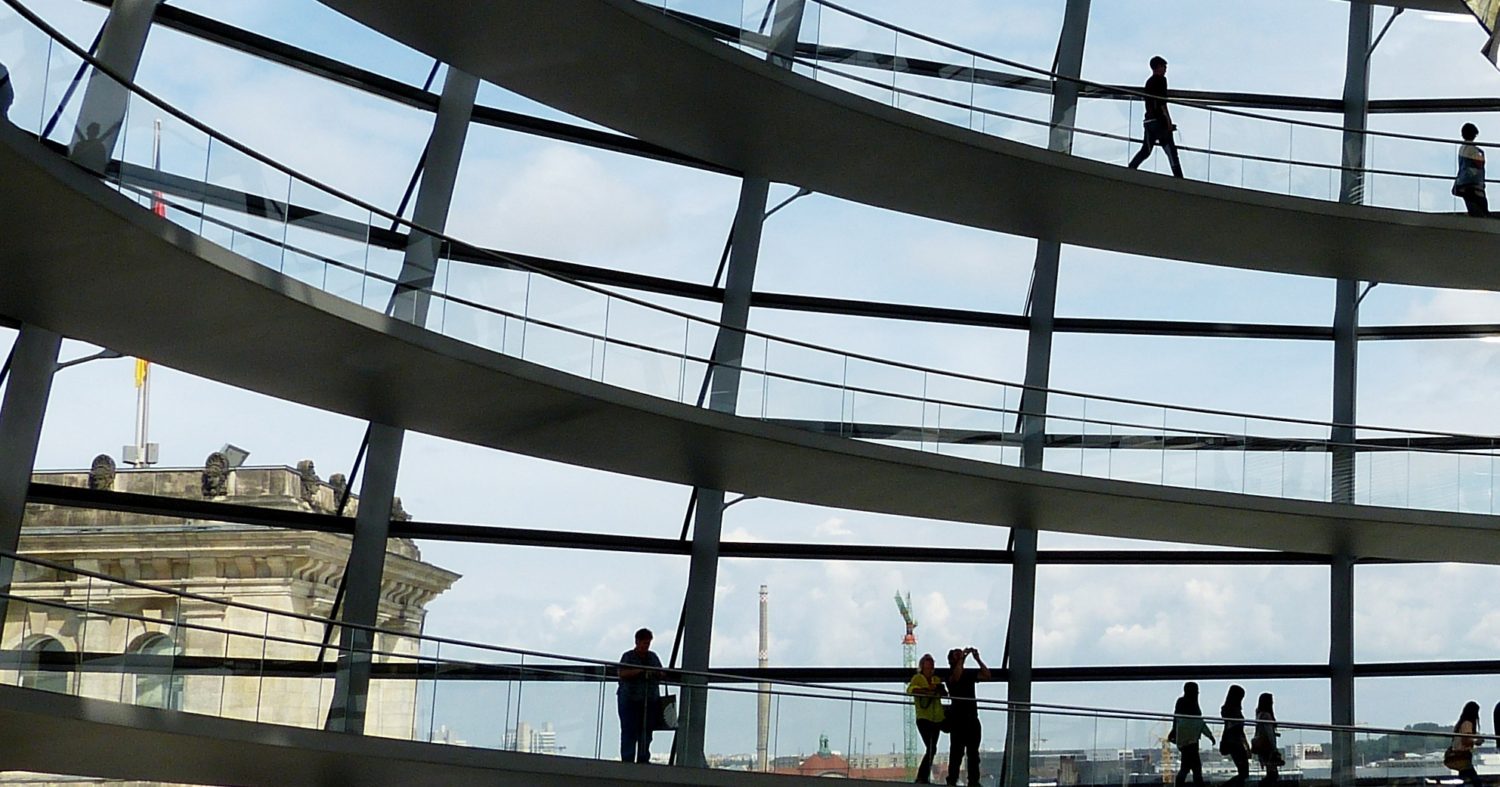On the brink
German social democrats are reeling from poor election results. Where can they go from here, asks Jannike Wachowiak?
Is Germany’s Social Democratic Party (SPD) teetering on the edge of the abyss? At 19.8 per cent, the SPD’s share of the vote in last month’s regional elections in Hesse was the party’s smallest ever in the state. Yet this result – representing a fall of 10.9 percentage since the last Hesse election – is not the worst verdict from the voters for the party of late. Just two weeks earlier, the SPD had had its first taste of what it feels like to fall below a two-digit election result. Only 9.7 per cent of voters in Bavaria voted for the social democrats, bringing the party its worst ever result in a regional election. Even more worryingly, this downward spiral is continuing at the federal level. Will the SPD become the latest example of a European social democratic party fading slowly into political irrelevance?
Back at the last German federal elections in September 2017, the SPD already seemed to have reached its lowest point – with barely 20 per cent of the votes. But instead of taking the opportunity for some desperately needed soul-searching in opposition, the party leadership (somewhat involuntarily) decided for the third time to enter into another grand coalition with Angela Merkel’s CDU. The recent poor results on the regional level demonstrate the party’s steady decline in electoral trust since then. Currently, the latest polls put the SPD at between 13 and 14 per cent of popular support were there to be a general election (Forsa, Emnid). That means the social democrats’ popularity has decreased by two thirds compared to 20 years ago, when in 1998 the party emerged as the largest faction in parliament with 40.9 per cent and led a SPD-Green coalition.
What are the reasons for this seemingly endless decline in electoral support over the last 20 years?
Most obviously, the party has suffered tremendously from being a junior party to Angela Merkel’s CDU for more than nine years (between 2005 and 2009, 2013 and 2017, and 2017 and now). Merkel’s composed and pragmatic political style and her patient wait-and-see approach to decision-making put to sleep – if not suffocated – the majority of public debate on political alternatives. Merkel’s frequent refusal to engage in any real competition of ideas, and instead, her appropriation of popular social democratic positions into her own portfolio, did not leave much space for the SPD to sharpen its own profile. This lack of debate and differentiation between the two main political competitors not only paved the way for the success of the far-right Alternative for Germany (AfD), but also discouraged the SPD from presenting a clear vision as to how it would shape the country’s future outside of a coalition with Merkel.
In all fairness, the SPD has left its mark during almost a decade of CDU-SPD rule, through measures including the introduction of a minimum wage, 30 per cent female share in the supervisory boards of large companies and improved access to kindergartens. These are in essence social democratic policies which the SPD was able to push through in government through compromises with its coalition partner. But under the constant strain to compromise and – as the smaller coalition partner – very often to dilute its own policy proposals, the SPD has struggled to credibly develop, nurture and communicate its own hopeful story. Making politics came down to presenting road-maps and to-do lists, which could then be worked through and ticked off. However, lately, not even these small policy successes have managed to cut through the noise of internal squabbling about migration policies or the obscure back-room deals about the future of the head of Germany’s domestic intelligence agency.
The problem within the SPD leadership and parliamentary party is not that it lacks awareness of the need for renewal and clear positioning. The report Learning from Mistakes, commissioned by Martin Schulz after the 2017 election, describes in great detail the party’s lack of courage and clarity in saying what it stands for. And just this month numerous opinion pieces by SPD general secretary Lars Klingbeil and the Europe minister Michael Roth addressed these painful subjects. What is more, for the first time in its history the SPD has a female leader, Andrea Nahles, who has declined to secure a position within the government and instead committed herself to the process of renewal. Several initiatives such as DisruptSPD or SPDplusplus have started to work on concepts for a more diverse, participative, female and digital party. However, in the current polarised climate, the SPD’s step-by-step approach to politics, which is also reflected in its renewal strategy, does not seem to resonate with voters.
And others are benefiting. The last two German state elections show that the SPD is not acting in a political vacuum. In the Hesse state elections, the SPD lost 142,000 voters to the Greens. In Bavaria, more than 200,000 former SPD voters shifted to the SPD’s former junior partner. By positioning themselves as the direct opposite to the AfD, the Greens are riding on a wave of success. In a polarised political system, this clear dissociation from the AfD increasingly pays off with younger middle-class voters in the urban centres, as well as with more centrist voters who feel alienated by the mainstream parties’ flirtation with the AfD’s anti-migrant stance. Unencumbered by the confinements of the government coalition, their voters can see in them the promise of positive change.
If the SPD party keeps hesitating and dithering, it will neither win back the trust of its traditional working-class voter base, nor be able to build a bridge between those voters and the more cosmopolitan parts of the electorate. However, to tackle the social changes of our time the ability to build bridges will be vital: bridges between safeguarding jobs and environmental protection, between workers’ protection and digitisation, between prosperity and climate protection, and between traditions and open-mindedness. This does not mean that you can please everybody from the German car industry to the local NGO – the party needs to be clear and consistent in its aims and policies. Instead of fearing or talking down the success of the Green Party, the SPD should also build bridges with its former coalition partner. It is, inter alia, the lack of a convincing broad left alliance which paved the way for an infinite loop of grand coalitions. Within this social democratic and green alliance the SPD could highlight its brand essence of being a bridge builder between progressive causes.

